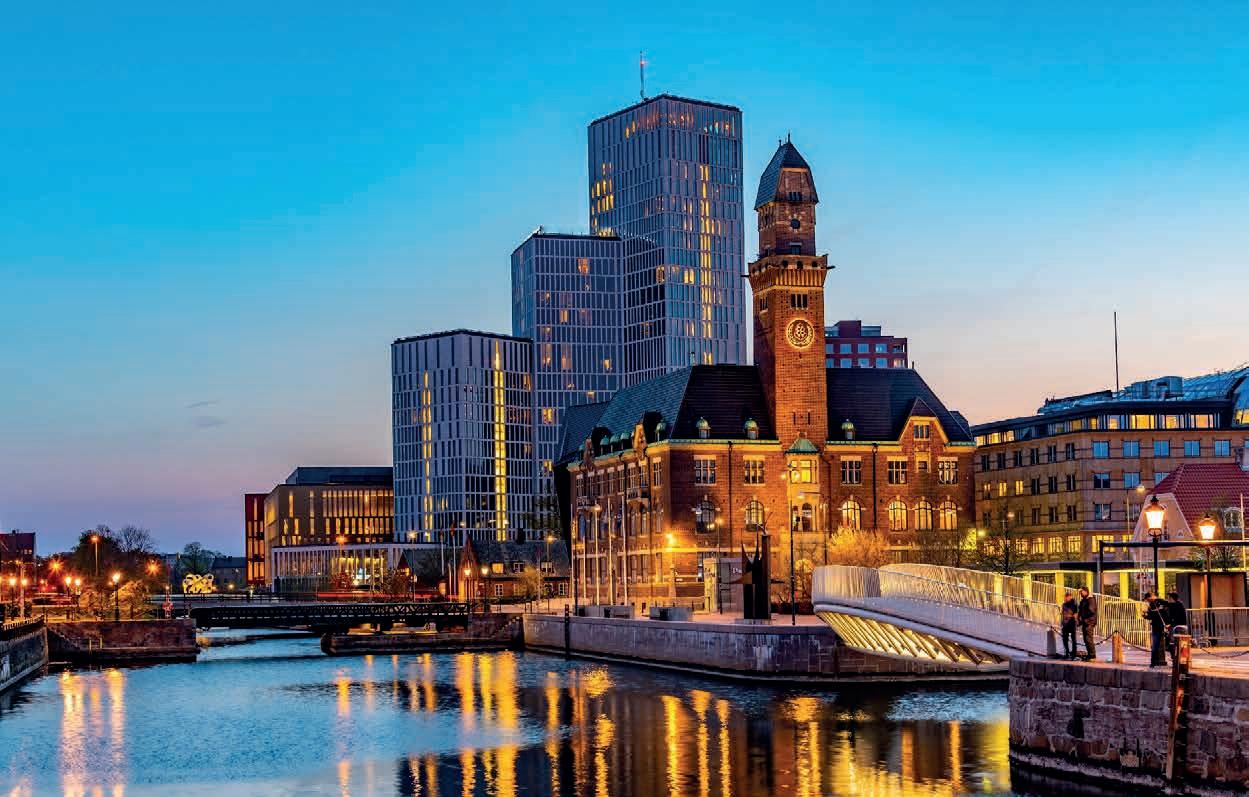
4 minute read
Message from the Chancellor
Mr. Kitack Lim
WMU Chancellor and Secretary-General, International Maritime Organization, WMU Class of 1991
AS A NEXUS OF MARITIME KNOWLEDGE AND EXPERTISE THAT BENEFITS IMO MEMBER STATES, WMU SIGNIFICANTLY ENRICHES THE MARITIME COMMUNITY. THE IMPACT OF SHIPPING ON EVERY FACET OF OUR LIVES MAY OFTEN GO UNREMARKED, BUT IT IS UNDOUBTEDLY SIGNIFICANT. WMU AND ITS ALUMNI ARE MAKING THEIR MARK. THROUGH THE COMBINED EFFORTS OF THE WMU TEAM, GRADUATES, DONORS, GOVERNORS, RESEARCHERS AND STAKEHOLDERS, TOGETHER, WE ARE MAKING THE MARITIME AND OCEANS COMMUNITIES MORE COLLABORATIVE, EXCITING, SUSTAINABLE AND PROGRESSIVE.
As the Chancellor of the World Maritime University (WMU), it is an honour for me to present the 2019 Annual Report on behalf of the University’s Board of Governors and Executive Board, whom I thank for their dedication and hard work on behalf of the University.
In 2019, the University continued to deliver on its mandate, exemplifying excellence in maritime and oceans education, research and capacity-building. Graduates of WMU are uniquely prepared to support the work of the IMO, including uniform interpretation and effective implementation of the IMO conventions and related instruments. WMU graduates are the maritime and ocean leaders of today and tomorrow who possess the knowledge and power to turn ideas into reality. Their work and efforts will improve our lives, benefit our countries, our regions, and our planet. They are an elite global group of maritime professionals found in all sectors of an industry that has shaped the modern world. They are joining the global endeavours to address challenging issues such as combating climate change, including support of IMO targets for the reduction of Greenhouse Gas Emissions and achieving the UN Sustainable Development Goals (UN SDGs). I can say from first-hand experience, that on a daily basis, and in every aspect of my work, I make use of the invaluable skills I gained studying at WMU.
The Class of 2019 included 248 graduates from 71 countries: this was comprised of 129 MSc graduates from the Malmö Headquarters and 42 MSc graduates from the China programme (a combined total of 171 Master of Science graduates), three PhD graduates, and 74 graduates from the distance learning programmes (including 16 LLM graduates). In support of the UN SDG 5 focused on gender equality, a third of the overall graduates in 2019 were women, and the Shanghai MSc programme exceeded gender parity with 14 out of 27 graduates being female. The total number of WMU graduates now stands at 5,156 from 170 countries.
Beyond the excellent education provided at the University, WMU is excelling in supporting the shipping industry by bringing together the maritime and oceans sectors through its research and outreach. Carrying forward the IMO’s 2019 World Maritime Day Theme of “Empowering women in the maritime community”, WMU held a highly successful conference on the same theme. I am pleased that at the 31st session of the IMO Assembly in December 2019, the IMO Member States adopted a resolution entitled: “Preserving the legacy of the World Maritime Theme for 2019 and Achieving a Barrier-free Working Environment for Women in the Maritime Sector”. This is testimony to the importance of advancing this important agenda. It is critical that women have equal access to opportunities at all levels and within all sectors of the maritime field, which is further supported by the increasing proportion of women opting to study at WMU and
who have gone on to occupy senior level positions in government and at the IMO. The high-level participation of women in the public and professional spheres leads to better social and economic outcomes. WMU therefore continues to play a significant role in promoting the advancement of women in maritime and ocean professions.
In 2019, the WMU-Sasakawa Global Ocean Institute (GOI) made multiple contributions to the achievement of Goal 14 concerning the conservation and sustainable use of the oceans. The Institute is founded on a vision to bring to life a convergence platform, where policy makers, the scientific community, regulators, industry actors, academics, and representatives of civil society can meet to discuss how best to manage and use ocean spaces and their resources for the sustainable development of present and future generations. Multiple events in 2019, co-hosted by the WMU GOI, focused on the preparation of a new UN instrument concerning Biodiversity Beyond National Jurisdiction (BBNJ). In addition, several research projects are currently on-going and PhD opportunities are advancing our collective knowledge about sustainable use of the ocean and supporting achievement of the UN SDGs.
I wish to express my sincere appreciation to Dr. Cleopatra Doumbia-Henry, President of WMU, and her team for ensuring that WMU remains at the forefront of maritime and ocean education, research and capacity-building in the maritime and ocean sectors. Their tireless efforts to advance the mission of WMU and to secure the financial sustainability of the University through the Stewards of the Sea campaign are invaluable in ensuring the long-term future and success of WMU, which will benefit future generations of maritime and ocean leaders.
On behalf of the IMO, the University, and WMU’s past and future maritime and ocean leaders, I wish to express sincere appreciation to the donors who support the invaluable work taking place at WMU. Our donors understand the power of the University as a force for positive change and capacity-building, and recognize that their contributions support the implementation of IMO instruments and policies, as well as the UN SDGs for the benefit of humankind.
As a nexus of maritime knowledge and expertise that benefits IMO Member States, WMU’s contribution significantly enriches the maritime community. The impact of shipping on every facet of our lives may often go unnoticed, but it is undoubtedly powerful. WMU and its alumni are making their mark. Through the combined efforts of the WMU team, its governing bodies, graduates, donors, researchers and stakeholders, together, we are making the maritime and oceans communities more collaborative, exciting, sustainable and progressive.







